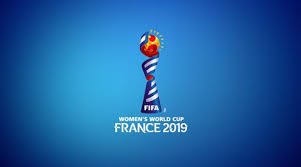October 5 – FIFA’s competitions committee has proposed an increase in prize money for the upcoming Women’s World Cup in France next year. The amount of the increase has not been disclosed but the proposal has now been sent to the finance committee for review before it presented to the FIFA Council for approval.
While FIFA will not offer parity in prize money to the men’s World Cup it is expected the gap will be significantly closed. In 2015 the US won $2 million for winning the World Cup in Canada. This figure compares with Germany receiving $35 million for their win in 2014 and France receiving $38 million this year in Russia.
The competitions committee proposal includes provision of preparation money for all competing teams for the first time, as well as a club benefits programme – compensating players for the release of their players for the tournament.
Former FIFA council member Moya Dodd, speaking to the Australian press, said that the increase in women’s prize money overall should at least be the same as the $40 million increase between 2014 and 2018 that the men’s tournament received.
“Leaders in sport should not be content to sit back and let the gender pay gap get wider in absolute terms on their watch,” she said.
In 2015 the overall prize money for the Women’s World Cup was $15 million. Teams at the 2018 World Cup received a participation fee of $1.5 million each as well as prize money of at least $8 million per nation. FIFA paid out $209 million to clubs for player participation at Russia 2018.
The competition committee also decided on the format for the France 2019 draw:
- The teams will be allocated to pots according to the FIFA/Coca-Cola Women’s World Ranking to be released on 7 December 2018.
- There will be four pots of six teams, which will be drawn into six groups of four teams. No two teams from the same confederation shall be drawn into the same group, with the exception of the European teams, represented by nine slots.
- Each group must have at least one, but no more than two, European teams drawn into it: thus, three out of the six groups will have two European teams.
Contact the writer of this story at moc.l1744397169labto1744397169ofdlr1744397169owedi1744397169sni@n1744397169osloh1744397169cin.l1744397169uap1744397169

